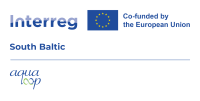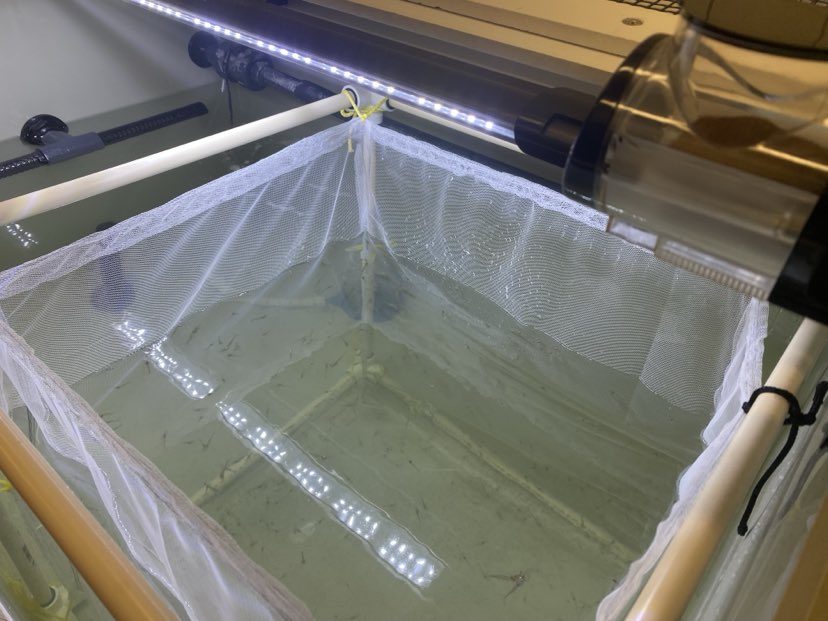At the beginning of November 2024 a delivery of whiteleg shripms (P. vannamei) came to the University of Gdańsk RAS laboratory, marking the beginning of the trials on shrimp aquaculture and next to come – microalgae, within Pilot 1: TARAS – Testing Algae Applications in Recirculating aquaculture systems (RAS) to improve aquaculture circularity potential in the SB region.
As part of the previous months work within the pilot two pilot modules have been designed: (1) RAS shrimp aquaculture including facility improvements (current RAS system includes 4 separate tanks 300l each, and new light system to mimic tropical conditions), shrimps diet, supplements improving growth performance and resistance to pathogens, breeding cycles parameters, post-larvae delivery, indicators to be studied, including: survival rate (SR), weight gain rate (WGR), feed conversion ratio (FCR), specific growth rate (SGR), feed intake (FI), scope for growth (SFG), net growth efficiency (K2), hemolymph biochemical indexes (TP, TG, T-CHO, MDA), fatty acid composition, intestinal histology (FH, FW, MT) and infections (bacterial, viral, fungal); (2) microalgae production and application, including waste water treatment and application for microalgae production, determination of water chemical composition (nutrient content), photobioreactor panels design, two phased approach design, where cells from the culture medium will be transferred to the effluent – cells will be harvested by centrifugation and then resuspended in the RAS water, and subsequently, biomass will be collected and subjected to biochemical analysis.
The shrimps (delivered as PL14) from the White Panther Hatchery are being taken care of by the team of researchers experienced in RAS shrimps experiments. In the daily routine activities they are assisted by marine biology students of the University of Gdańsk. In January 2025 also students from the University of Rostock and Klaipeda University participating in the AquaLoop cross-border student exchange program will take part in daily routine activities in the pilot: analyses of water chemistry and animals, analyses of physiological parameters in shrimps (rates of food consumption, feces and ammonia excretion, respiration, osmoregulation), and growth of specific strains of microalgae using RAS waste water.
More updates will come as the trails progress.
PL14 whiteleg shripms on the day of delivery
Shrimps in the RAS system (4 weeks after delivery)

